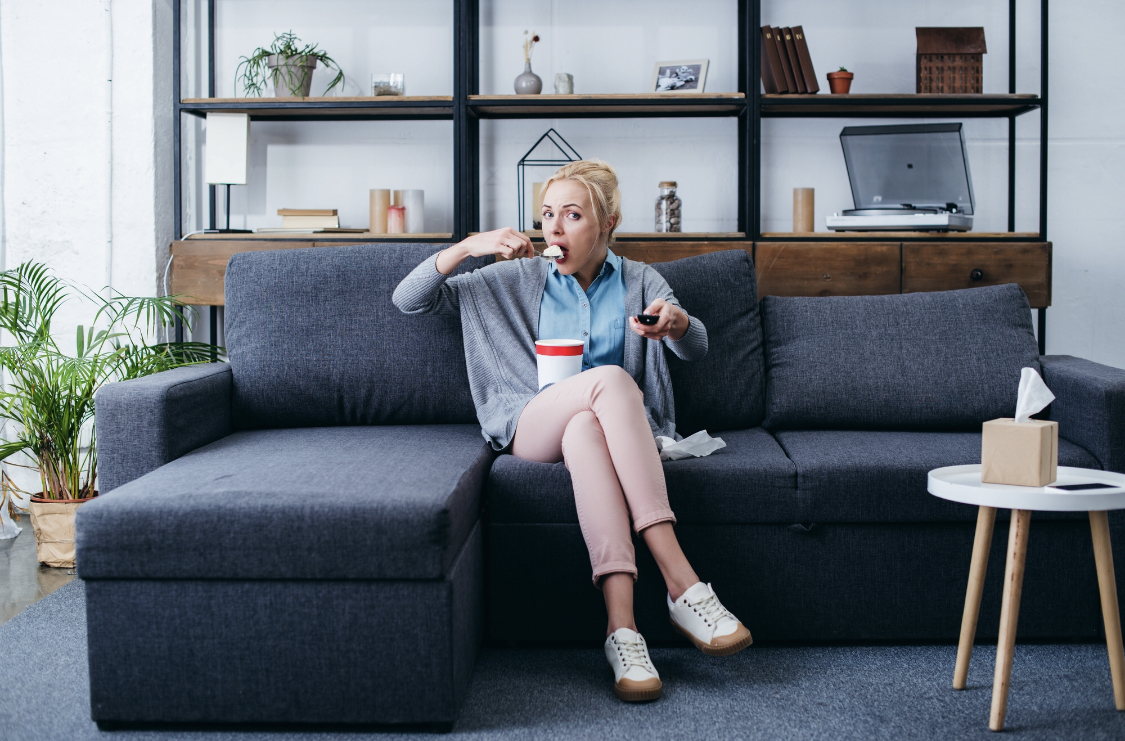Using food as a source of comfort is something most people struggle with at some point in their lives. It’s also something we don’t like to discuss (Food, Politics & Religion – Am I right?). Emotional eating is personal and for some painful, but it doesn’t have to be this way! Although it may seem impossible, there are strategies to work through it.
First, be aware of your “trigger” times. The most common emotional eating times are after work, mid to late afternoon, and after 8 PM. With this awareness, you can apply the “H.A.L.T. method”.
H.A.L.T. – During periods of stress, trigger times, strong cravings or emotions, stop and ask yourself before you reach for food: Am I hungry? Am I angry? Am I lonely? Am I tired? This is the HALT method, and it works by improving mind/body awareness to more accurately give ourselves what we need. If you feel angry, lonely, or tired, acknowledge these without judgment. Being angry, lonely and/or tired are some of the most common non-hunger related food triggers. Here’s the breakdown:
H. Hungry? Physical hunger hits below the neck, builds gradually, is easily satisfied, and energizes you. Emotional hunger hits above the neck, has a sudden onset, is not easily satisfied, and leaves us feeling tired, sluggish, and sometimes guilty. If you’re unsure what kind of hunger you’re experiencing, ask yourself where you feel it in your body, and eat a healthy snack or a small portion of the food you crave. Note what happens 15-20 min after. If you feel satisfied, you are likely experiencing physical hunger. If the craving strengthens or now you want something else, it may be emotion related.
A. Angry? Work towards a resolution of the issue by calmly addressing it. If this is not possible or you aren’t ready, express yourself in another way. Run, do jumping jacks, climb stairs, or get on a bicycle or elliptical. Find a way regain control of your heart rate through activity. Need to settle down? Paint, write, or use another relaxation practice. Attempting to regulate this emotion with an endorphin release from food not only fails to resolve the problem, but can compound it by later causing increased feelings of guilt and in some cases, more anger.
L. Lonely? Call a friend, walk outside, or invite someone over! If you feel like you have nobody to talk to, join a book club, fitness class, volunteer group, or consider getting a pet. Pets are not only great companions, but they lead toincreased interaction, get you out of the house, and provide common ground tospark a conversation.
T. Tired? Do something that leaves you feeling energized. Whether it be exercise, talking with a friend, getting fresh air, or taking a 20 minute snooze. Set an alarm to go to bed that night and get adequate rest. Lack of sleep wreaks havoc on our ability to self-regulate.
Bottom Line: Everyone emotionally eats, and that is OK! There is nothing inherently bad about this, and food is meant to be enjoyed. But if you feel like it’s causing a problem for your mind/body health, awareness of your own eatingcues is important. Do your best to learn about your body and give it what it truly needs. It will tell you if you listen! Sometimes, you just need to H.A.L.T.

